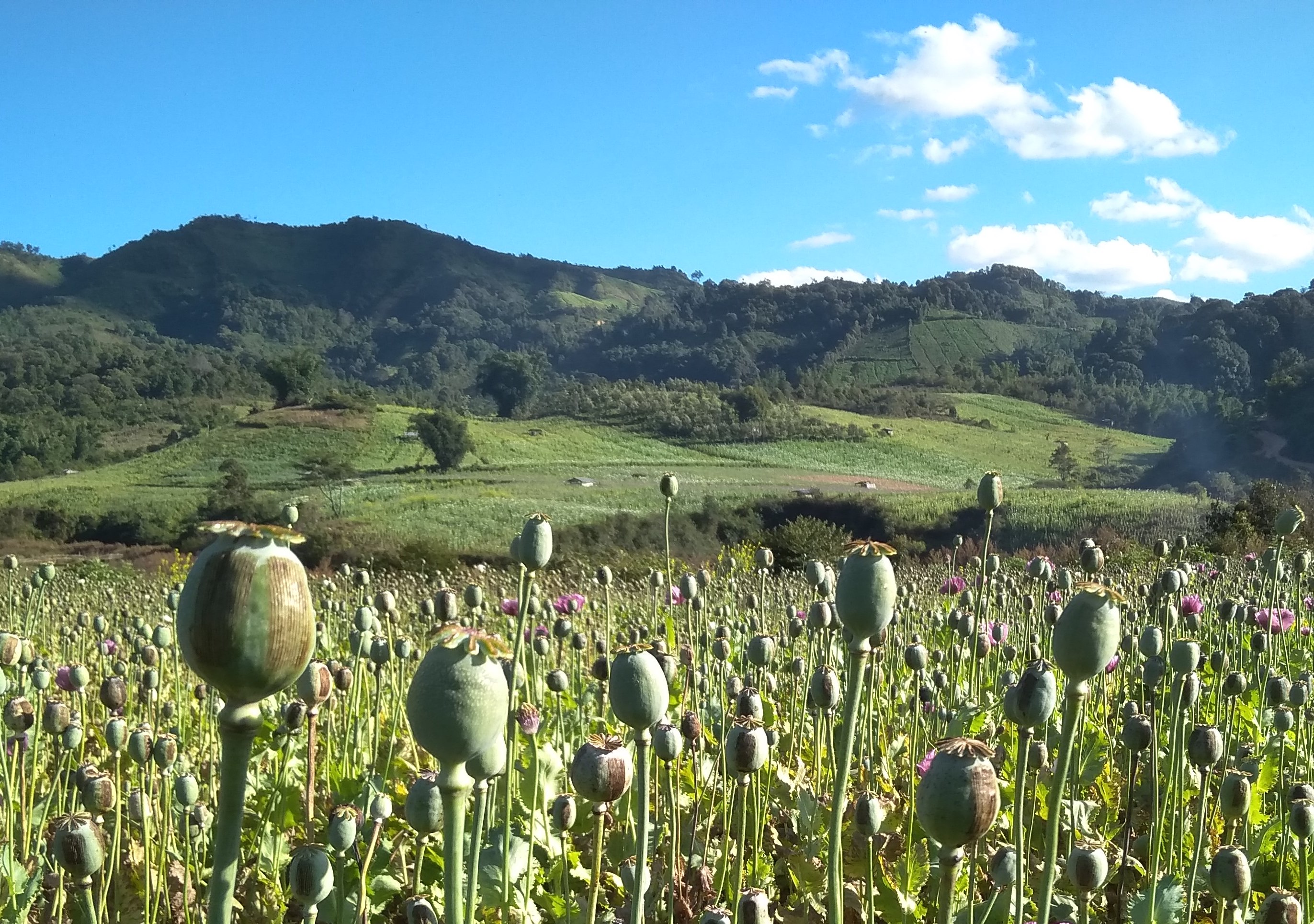|
Dear reader,
In November 2018, the Myanmar Opium Farmers Forum, in collaboration with the Transnational Institute, produced a documentary film “Opium Farmer”. According to the UN, Myanmar is the second largest producer of illicit opium after Afghanistan. Ninety percent of Myanmar’s opium poppy cultivation is concentrated in Shan State, where opium farmers and their families continue to live under the threat of conflict and socioeconomic insecurity, exacerbated by repressive eradication policies.
|
 Credit: Dania Putri (TNI). Credit: Dania Putri (TNI).
|
|
|
Thanks to this movie, the world is now able to witness the other side of the story, as it sensitively portrays the lives of two opium farming families in Myanmar and sheds light on their plight. On 9 September 2019, “Opium Farmer” was awarded Best Documentary Film at the Wathann Film Festival in Yangon.
|
| Drugs & Democracy Podcast |
|
|
|
When TNI’s Drugs and Democracy programme was formed more than two decades ago, the drugs issue was still considered controversial, especially with regard to the situation of communities involved in the illicit cultivation of coca, cannabis, and opium poppy. In this podcast interview with Shaun Matsheza, Programme Director Martin Jelsma recalls one of his first experiences working with farmers in Myanmar: “I remember one moment when we came with a bus full of opium farmers, and we drove into Naypyidaw, the new capital, a place where most of them had never ever been. There was a meeting with the government officials, and half of them were in uniforms.” At the time, most opium farmers “never thought it would be possible to have that direct conversation in the same room and not being arrested.”
Subscribe to State of Power on Spotify, TuneIn or AudioBoom
|
|
|
|
|
| The Importance of Fair(er) Trade Options in the Cannabis Market in the Americas |
|
|
|
|
|
|
In recent years, governments in the Americas have adopted various regulatory frameworks for the legal use, sales, and production of cannabis – hence the so-called “green gold rush” and arrival of foreign investors in countries like Colombia, Jamaica, and many others. Undoubtedly, this development comes with its own challenges, and calls for policy measures that also look after the needs and future of small-scale farmers and traditional cannabis producing communities. Maria Cattaoui and Richard Branson address this in a recent Op-Ed, incorporating findings from our report on fair(er) trade options for the cannabis market.
|
|
|
|
| A new ‘war on drugs’ in the Netherlands?
|
|
|
|
|
|
|
Cannabis policy in the Netherlands was liberalised in 1976. Back then, the Netherlands was far ahead of its time. But today, certain academics and policymakers believe – without proper scientific evidence – that Dutch society is ‘undermined’ by organised drugs crime. In so doing, some are calling for a new hard approach in the country. Senior policy analyst Tom Blickman presents his rebuttal in this opinion piece (Dutch version available here) and in this interview with De Groene Amsterdammer (in Dutch).
|
|
|
|
|
Formed in 1996, the TNI Drugs & Democracy programme explores the underlying causes of drug production and consumption and advocates for evidence-based policies that respect the human rights of producers and consumers. |
|
|
|
| |
|
|
| | | | |